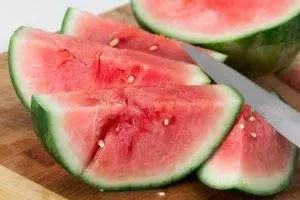By Qineng Tan, L.Ac., Ph.D. and Xiaomei Cai, L.Ac., Ph.D.

Acid reflux, also known as heartburn, is the most common symptom of GERD (gastroesophageal reflux disease), a chronic disease in which the contents of the stomach move upwards into the esophagus, irritating the lining of the food pipe and causing burning pain in the chest, among other symptoms.
It is estimated that at least 40% of adults experience heartburn symptoms at some point in their lives, while up to 20% experience heartburn at least weekly, making GERD one of the most commonly diagnosed digestive disorders in the US. If a person is experiencing GERD symptoms frequently, doctors will usually try to treat acid reflux with medications called proton pump inhibitors (PPIs) and lifestyle changes. However, in many cases, patients will continue to suffer with symptoms beyond chest pain and regurgitation, often in concert with other common digestive complaints like dyspepsia (indigestion), IBS (irritable bowel syndrome), and ulcers in the stomach, necessitating further investigation and treatment.
TCM and acupuncture offer an alternative course of action to deal with acid reflux and many other digestive disorders. Acupuncture treatment has been shown to be even more effective than medications for heartburn relief. Acupuncture and herbal natural remedies for heartburn provide long-term positive results for GERD symptoms by helping to resolve the digestive disorder at its origin.
Acid Reflux Symptoms
Gastroesophageal reflux disease is characterized mainly by the reverse flow of digestive fluids up into the esophagus. When this occurs regularly over time, it can damage the lining of the esophagus and cause other problems. The sensation of “heartburn” is the most commonly known symptom of acid reflux, but it is possible to have GERD and not experience this burning sensation. GERD can occur with other non-acidic digestive fluids and may not cause the type of pain caused by acidic stomach juices. GERD symptoms include:
- Burning in chest, worse after eating and when lying down
- Chest pain, even when you haven’t eaten
- Difficulty swallowing
- Regurgitation of food or sour-tasting liquid
- Excessive salivation
- Sensation of a having a lump in the throat
- Excess gas in stomach and bloating
- Intolerance of certain foods and beverages
- Bad breath, or a constant sour taste in the mouth
- Hoarse voice or laryngitis
- Constant need to clear the throat
- Chronic dry, sore throat
- Burning sensation in the mouth
- Inflammation of the gums and other dental problems
Acid reflux symptoms may appear at the same time as other symptoms like stomach pain, stomachache, and stomach cramps. These may be stomach ulcer symptoms, gastritis symptoms, or signs of dyspepsia, as it is common for two or more of these digestive issues to coexist.
Heartburn Causes

While there is no single clear cause of GERD, it is usually related to the functioning of the lower esophageal sphincter (LES), the ring of muscle that separates the esophagus from the stomach. The LES, when it works correctly, allows chewed food matter to pass into the stomach, then closes to prevent matter from the stomach from flowing upwards. When this sphincter is relaxed or weakened, the contents of the stomach can breach this barrier. This can happen due to pregnancy or excess weight in the belly pushing upwards on these organs. Sometimes it may be due to a hiatal hernia, which can cause the upper part of the stomach and LES to push through the diaphragm muscle into the chest area.
Heartburn can be triggered by eating spicy or acidic foods, by smoking or inhaling second-hand smoke, or the use of aspirin or ibuprofen, as well as some blood pressure medications. If abstaining from these triggers does not help, patients may be referred to a gastroenterologist for investigative testing to pinpoint the problem. Endoscopy of the upper GI tract can show whether there is a hiatal hernia, stomach ulcers, or damage to the esophagus.
Acid Reflux Treatment
Many people take over the counter antacids (like Tums, Rolaids, Maalox, or Mylanta) to try to get heartburn relief. These may help alleviate the burning sensation temporarily, but using antacids frequently can actually exacerbate the problem by creating more stomach acid. Histamine (H2) blockers (like Pepcid and Zantac) can help reduce production of acid, but they don’t work for everybody. PPIs (like Prevacid, Prilosec, and Nexium) work by blocking the production of stomach acids.
These GERD medications can help with healing stomach ulcers and reducing acid reflux, but there are downsides. These drugs are very expensive, and many people end up using them on a daily basis. PPIs also inhibit the output of certain enzymes, which creates a negative interaction with common heart disease medications. They can also reduce absorption of calcium in the digestive tract, which can lead to weaker bones and increased risk of fractures. PPIs can also affect kidney function and increase the levels of bacteria in the stomach; if this bacteria makes its way up into the chest area due to reflux, it can get into the lungs and cause higher risk of pneumonia and other respiratory infections.
Asthma and GERD are often considered to be related conditions, because acid reflux can irritate tissues that trigger asthma attacks, while asthma attacks can cause a weakness in the LES that triggers reflux. Asthma medications like theophylline can also cause heartburn attacks. People who suffer from both GERD and asthma need to manage both conditions in tandem.
Prescribed medications called prokinetics cause the stomach to empty more quickly, reducing the chances of reflux. However, they can also cause side effects like nausea, diarrhea, fatigue, anxiety and depression, as well as having contraindications with other prescriptions.
All of these medical treatments focus on the stomach acids that cause heartburn. Currently, there is no conventional treatment that helps to restore the normal functioning of the LES. Research has indicated that acupuncture treatment, in addition to helping regulate gastric secretions, may help to strengthen the motor function of the LES.
Acupuncture and Herbs for GERD
Traditional Chinese Medicine (TCM) is a holistic system of medicine founded on over 3000 years of recorded research and practice. In TCM, all health problems are viewed as imbalances caused by blockages of Qi (life force energy) in the body. Disorders of the organ systems are often linked to emotional disturbances. According to TCM, acid reflux and other digestive problems are influenced by stress and anxiety. Long-term, ongoing feelings of worry, frustration, and anger impact the liver, spleen and stomach, increasing acidity and inflammation in these organ systems.
An “upset stomach” and feelings of tightness and pain in the chest are caused by Qi rising inappropriately, causing the backflow of acids. Acupuncture treatment for GERD focuses on calming anxiety, and restoring the downward flow of Qi, while toning the stomach and LES to improve their motor function.
TCM uses herbal formulations, developed over many centuries, to support the proper functioning of the internal organs on a deep nutritional level. Herbal remedies for acid reflux in TCM work to increase healthy mucus in the esophagus, soothing and healing damage from stomach acids.
An acupuncturist is also likely to ask questions about dietary habits, as certain foods are likely to be part of the problem. Working together with a qualified TCM practitioner to plan meaningful lifestyle changes, specific to each individual, will also help resolve heartburn, stomach pain, and indigestion.
TCM for Heartburn During Pregnancy
Many women experience acid reflux, which can happen at any time during pregnancy. This is due to hormone changes that can relax the LES so that it doesn’t close completely. In the later stages of pregnancy, the uterus pushes up on the digestive organs and diaphragm. According to TCM, stomach fire, indicated by a craving thirst for cold drinks, may need cooling. Stagnation in the digestive organ system can cause belching and bloating. Acupuncture treatments can be tailored to address these conditions, improving digestive flow and balancing hormones. Acupuncture can also help if baby is showing signs of colic or infant reflux.
Top 10 Tips for GERD Diet and Lifestyle

Creating and maintaining balance between Yin (cool) and Yang (warm) energies in the body and spirit is central to treating heartburn with TCM.
- High fiber diet – eat oatmeal and plenty of cruciferous vegetables like cauliflower and broccoli.
- Avoid citrus fruits (oranges, lemons, limes, grapefruits) and emphasize melon, bananas, apples and pears. Tomatoes and pineapple are also highly acidic and can cause problems, as can onions and garlic. Citric acid is also a common food additive and should be avoided.
- Eat several small meals per pay – eating larger amounts at one time increases the chance of the stomach becoming distended.
- Reduce fatty foods – high-fat foods stay in the stomach longer. Avoid fried foods, dairy ingredients and marbled meats.
- Avoid alcohol, especially red wine
- Avoid caffeinated drinks: coffee, tea and sodas can all trigger heartburn.
- Drink ginger or chamomile tea, which are both soothing to the stomach. Green tea can also positively stimulate the LES.
- Don’t lie down after you eat. Eat at least two hours before you intend to go to bed.
- Watch your workout positions: movements that affect your abdomen can cause reflux. Crunches, sit-ups, leg lifts, headstands, downward dog and other poses should be done carefully if at all. Never exercise on a full stomach.
- Sleep with your head elevated above your feet. A wedge-shaped foam lift will work much better than stacking pillows. Or, attach risers to the feet at the head of your bed.
Best Acupuncture Near Me for Heartburn Relief
Acupuncture treatment for heartburn is a safe and effective acid reflux remedy. If you or someone you know is suffering from GERD, acid reflux, gastroparesis, stomach pain, or symptoms of ulcer, we hope that you will not hesitate to find an acupuncturist in your area to schedule an initial consultation. We are practicing at Art of Wellness in Santa Monica, one of the top 20 acupuncture clinics in the greater Los Angeles area.
*This article is for education from the perspective of Traditional Chinese Medicine only. The education provided by this article is not approved by FDA to diagnose, prevent, treat and cure human diseases. It should not stop you from consulting with your physician for your medical conditions. Traditional Chinese Medicine is based on Qi, which is an invisible force that usually cannot be observed by modern science. Because science focuses on testing ideas about the natural world with evidence obtained through observation, these aspects of acupuncture can’t be studied by science. Therefore acupuncture and Chinese herbs are often not supported by double-blind, randomized trials, and they are considered alternative medicine therapies in the United States.
